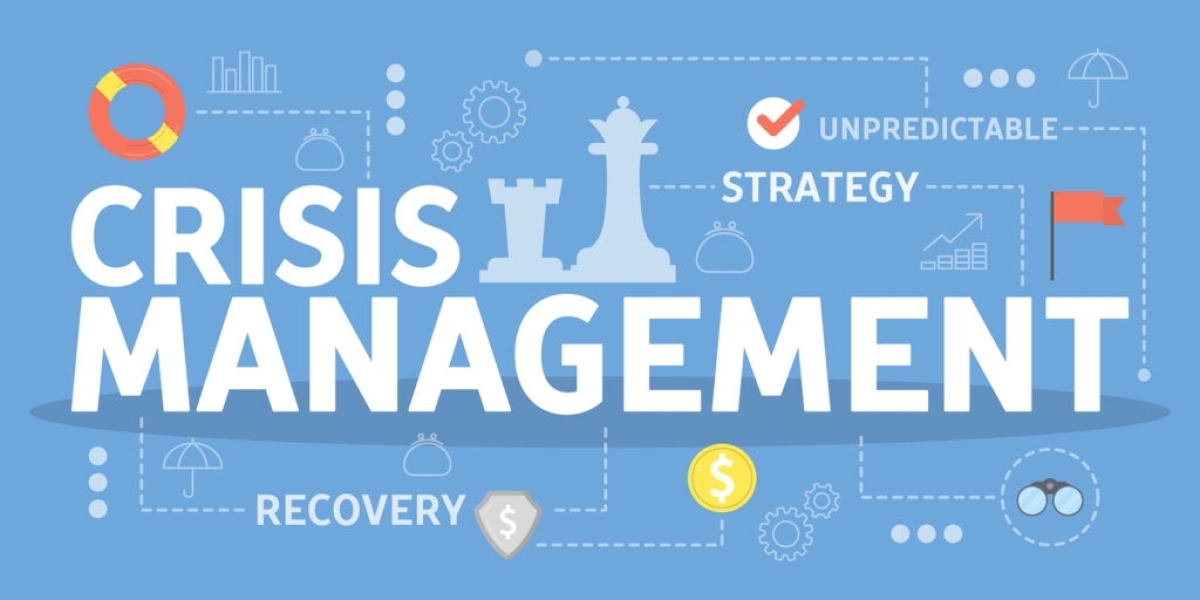In the modern business landscape, reputational threats can arise suddenly and have far-reaching consequences. Companies must be prepared to address these threats swiftly and effectively to maintain their standing and trust with stakeholders. Crisis management consultants are experts in navigating these turbulent waters, employing a range of strategies to mitigate damage and restore confidence. This article explores how crisis management consultants handle reputational threats, focusing on proactive planning, rapid response, communication strategies, stakeholder engagement, and long-term recovery.
Proactive Planning and Risk Assessment
Crisis management consultants start by conducting thorough risk assessments to identify potential vulnerabilities that could lead to reputational damage. This involves analyzing the company’s operations, industry environment, and external factors that could pose threats. By understanding these risks, consultants can develop tailored crisis management plans that outline specific actions to take in various scenarios.
Proactive planning is essential for minimizing the impact of reputational threats. Consultants help businesses create detailed crisis management manuals, conduct training sessions, and run simulations to ensure everyone is prepared for potential crises. This forward-thinking approach not only reduces the likelihood of severe reputational damage but also builds a resilient organizational culture that can withstand unexpected challenges.
Rapid Response Mechanisms
When a reputational threat materializes, the speed and effectiveness of the response are critical. Crisis management consultants implement rapid response mechanisms to ensure that issues are addressed promptly. This involves setting up crisis communication teams that can act swiftly to gather information, assess the situation, and coordinate an appropriate response.
The first few hours of a crisis are crucial. Consultants emphasize the importance of having a clear chain of command and predefined protocols for decision-making. Rapid response mechanisms enable businesses to control the narrative, prevent misinformation, and demonstrate that they are taking decisive action to resolve the issue. By responding quickly and effectively, companies can mitigate the damage to their reputation and begin the process of rebuilding trust.
Strategic Communication During Crises
Effective communication is a cornerstone of crisis management. Crisis management consultants develop strategic communication plans that address both internal and external stakeholders. These plans include templates for press releases, social media updates, and internal memos, ensuring that messaging is consistent and coherent across all channels.
During a crisis, transparency and honesty are paramount. Consultants advise businesses to communicate openly about the situation, what is being done to address it, and what stakeholders can expect moving forward. This approach helps to build credibility and trust, even in the face of negative events. By managing the flow of information and maintaining a consistent narrative, companies can better control the impact on their reputation.
Engaging with Stakeholders
Stakeholder engagement is another critical aspect of handling reputational threats. Crisis management consultants assist businesses in identifying key stakeholders, including customers, employees, investors, regulators, and the media. Engaging with these groups effectively requires tailored communication strategies that address their specific concerns and needs.
Consultants help businesses maintain open lines of communication with stakeholders throughout the crisis. This might involve regular updates, Q&A sessions, and direct outreach to key individuals or groups. By actively engaging with stakeholders, companies can address their concerns, gather valuable feedback, and demonstrate a commitment to transparency and accountability. Effective stakeholder engagement helps to maintain trust and support, which are essential for navigating through a crisis.
Long-Term Recovery and Reputation Rebuilding
The work of crisis management consultants does not end once the immediate threat has passed. Long-term recovery and reputation rebuilding are crucial for restoring stakeholder confidence and ensuring sustained success. Consultants assist businesses in conducting post-crisis evaluations to understand what went wrong, what was handled well, and what can be improved for the future.
Reputation rebuilding involves a strategic combination of actions, including enhancing corporate social responsibility initiatives, launching positive public relations campaigns, and implementing operational changes to prevent future crises. Consultants work with businesses to develop and execute these plans, ensuring that the company emerges from the crisis stronger and more resilient. Long-term recovery efforts help to restore trust, improve brand perception, and position the business for future growth.
Leveraging Media and Public Relations
Media and public relations play a significant role in crisis management. Crisis management consultants guide businesses in leveraging media channels to manage their reputation effectively. This includes preparing spokespeople for media interactions, crafting press releases, and managing social media communications.
Consultants emphasize the importance of maintaining a positive relationship with the media. By providing timely and accurate information, businesses can influence the narrative and ensure that their side of the story is heard. Effective media relations help to control the spread of misinformation and rumors, which can exacerbate reputational damage. Consultants also advise on how to use social media strategically to engage with audiences, address concerns, and disseminate key messages during a crisis.
Managing Legal and Regulatory Aspects
Reputational threats often come with legal and regulatory implications. Crisis management consultants help businesses navigate these complexities by working closely with legal teams to ensure compliance with all relevant laws and regulations. This might involve coordinating with regulatory bodies, managing legal risks, and preparing for potential litigation.
Legal and regulatory issues can significantly impact a company’s reputation. Consultants assist in developing strategies to address these challenges proactively, including transparent communication with regulators and the public. By managing legal aspects effectively, businesses can reduce the risk of additional reputational damage and demonstrate their commitment to ethical and legal standards.
Enhancing Corporate Culture and Values
A strong corporate culture and clear values are foundational to building and maintaining a positive reputation. Crisis management consultants work with businesses to enhance their corporate culture, emphasizing values such as integrity, accountability, and customer focus. During a crisis, these values serve as a guiding framework for decision-making and communication.
Consultants help businesses integrate these values into their crisis management plans, ensuring that actions taken during a crisis align with the company’s core principles. By demonstrating a commitment to strong values, businesses can build trust with stakeholders and reinforce their reputation as ethical and reliable organizations. This cultural alignment is crucial for navigating reputational threats and emerging stronger from crises.
Continuous Improvement and Preparedness
Continuous improvement is essential for effective crisis management. Crisis management consultants assist businesses in developing processes for ongoing evaluation and enhancement of their crisis management strategies. This includes conducting regular risk assessments, updating crisis management plans, and providing ongoing training for employees.
Preparedness is a key component of continuous improvement. Consultants emphasize the importance of being ready for potential crises through regular drills, simulations, and scenario planning. By fostering a culture of preparedness and continuous improvement, businesses can enhance their resilience and ability to handle reputational threats effectively. This proactive approach ensures that the company is always ready to protect its reputation and maintain stakeholder trust.
Measuring Impact and Success
Evaluating the impact and success of crisis management efforts is crucial for understanding their effectiveness. Crisis management consultants help businesses develop metrics and benchmarks to measure the outcomes of their crisis management strategies. This might include analyzing changes in stakeholder perception, media coverage, and financial performance.
By assessing the impact of crisis management efforts, businesses can identify strengths and areas for improvement. Consultants provide detailed reports and insights, helping companies refine their strategies and enhance their preparedness for future crises. Measuring success not only validates the effectiveness of crisis management efforts but also demonstrates to stakeholders that the business is committed to continuous improvement and accountability.
Conclusion
In conclusion, crisis management consultants play a vital role in helping businesses handle reputational threats. Through proactive planning, rapid response, strategic communication, stakeholder engagement, and long-term recovery efforts, these professionals help companies navigate the complexities of modern reputational management. By leveraging their expertise, businesses can protect their reputations, maintain stakeholder trust, and emerge from crises stronger and more resilient. In an increasingly interconnected and fast-paced world, the guidance and support of crisis management consultants are essential for safeguarding a company’s most valuable asset: its reputation.









